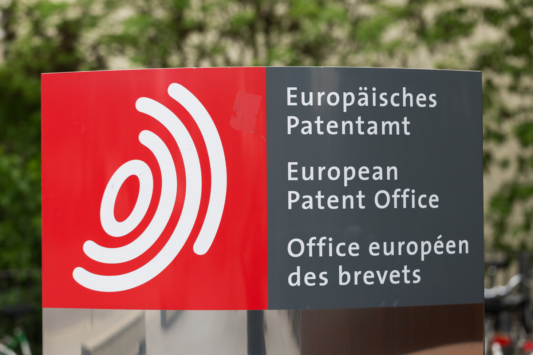Introduction
You are the holder of a Plant Variety Right (PVR), and you have identified a product that is clearly a copy of your variety. What should you do? How can you take action? Are there deadlines to be observed?
Whether you hold a national or Community PVR has no influence on how the dispute will be handled: in France, infringement of a PVR can only be assessed by a French national court, even if the PVR is a Community one. Only national laws apply.

There is no European legislation governing PVR infringement procedures. However, the Basic Regulation on Community Plant Variety Rights (Regulation (EC) No 2100/94, hereinafter “the Basic Regulation”) sets out some fundamental principles (Articles 94–107), in particular concerning the rules of jurisdiction determining which court may or must be seized when the PVR is a Community one (Article 101).
Article 103 specifies that the procedural rules of the State of that court shall apply.
Finally, Article 107 ensures that national courts apply to Community PVRs the same sanctions and remedies as they do to national PVRs. Directive 2004/48/EC on the enforcement of intellectual property rights, which also applies to Community PVRs, further clarifies the measures (substantive or provisional) that may be taken against infringers.
French law on PVRs was aligned in 2011 with the principles of Directive 2004/48/EC and today incorporates its main recommendations. More specifically, the articles of the French Intellectual Property Code (IPC) concerning the defense of PVR holders’ rights are found in Section 3 of Chapter III, in Articles L623-25 to L623-35 IPC.
Who Can Take Action?
Any holder of a valid PVR may bring an infringement action. To do so, you must be able to prove that the annual fees have been regularly paid since the filing of the certificate and that you are the legitimate holder of the title (either as the original owner or by acquisition). This information is available in the register of plant variety rights and can therefore be accessed by any third party.
Exclusive licensee of a PVR may also bring an infringement action if they have served formal notice on the PVR holder and the holder decides not to take action himself (Article L623-25 IPC).
How to Take Action?
Only Intellectual Property Attorneys and lawyers specialized in intellectual property law may represent the interests of PVR holders or alleged infringers before the competent courts.
To determine which courts are competent, it is necessary to identify who the infringers are, where they are domiciled, and the place of the infringement (i.e. where the allegedly infringing varieties are cultivated and also where they are sold).
If the PVR is a Community one, the jurisdiction rules set out in Article 101(2) of Regulation (EC) No 2100/94 provide that actions for infringement (or other actions relating to a Community PVR) may be brought:
- before the competent national court of the EU Member State in which the infringer is domiciled, has its registered office, or an establishment, or
- before the competent national court of the Member State in which the PVR holder is domiciled, if the infringer’s domicile, seat, or establishment is not in a Member State of the European Union, or
- before the competent national court of France (the Member State where the CPVO has its seat) if neither the infringer nor the applicant is domiciled in a Member State of the EU.
Article 101(3) of Regulation (EC) No 2100/94 further provides that infringement actions may also be brought before a competent court of the country where the infringement occurs. Thus, when the PVR is a Community one, French courts will have jurisdiction for any infringement acts committed in France.
If the case involves a French national PVR, only a French court may be seized. The French courts competent to hear all disputes relating to PVRs are the Judicial Courts of Marseille, Bordeaux, Strasbourg, Lille, Lyon, Nancy, Paris, Rennes, and Fort-de-France, as well as their corresponding Courts of Appeal.
When to Take Action?
It is possible to bring an infringement action based on a PVR as soon as it has been published (Articles L623-15 and L623-26 IPC). Otherwise, the alleged infringer must be notified with a certified copy of the application for a certificate, after which the facts may be recorded and pursued (Article L623-26 IPC).
It is therefore not necessary to wait until the PVR application has been granted by the Office. However, in the case of infringement proceedings based on a PVR that has not yet been granted, the court seized must stay proceedings until the PVR is granted, and will then apply two regimes of sanctions against the infringer:
For acts committed prior to the publication of the grant of the PVR, the holder will be entitled to “equitable remuneration.” This equitable remuneration is due only for acts of infringement involving variety constituents (i.e. plants or parts of plants capable of reproducing the variety)[1].
For acts committed after the publication of the grant of the PVR, the infringer may also be ordered to cease the infringement and/or to compensate the holder for the damage suffered (Article 94 of the Basic Regulation).
In addition, actions for infringement of Community PVRs are time-barred three years after the date on which the Community PVR was granted and the holder became aware of the act and the identity of the infringer, or, if such knowledge is lacking, thirty years after the act of infringement (Article 96 of the Basic Regulation).
The Court of Justice of the European Union clarified in its judgment of 14 October 2021 (Case C-186/18) that the limitation period begins “on the date of the most recent event, namely either the date on which Community protection was granted or the date on which the infringement and the identity of its author became known,” whether or not the infringing act continued after that point.
For a French PVR, the limitation period is five years, starting from the day on which the holder became aware or “should have become aware” of the “last infringing act” (Article L623-29 IPC). This specific wording (different from that of the Basic Regulation) implies that a PVR holder may obtain compensation for any infringing activity that occurred prior to the action being brought, without any time limit (as long as it is brought less than five years after the holder became aware of the last infringing act).
Who Is an Infringer?
Any natural or legal person who produces, reproduces, conditions for the purpose of reproduction or multiplication, offers for sale, sells or otherwise markets, exports, imports, or possesses for one of these purposes reproductive or propagating material of the protected variety is considered an infringer (Article L623-4 IPC).
Under paragraph III of this article, any person who carries out one of the above-mentioned acts in relation to a variety that differs only in a non-substantial way from the protected variety (i.e. not clearly distinguishable from it) or to a variety that requires repeated use of the protected variety is also an infringer.
Finally, any person who carries out one of the above-mentioned acts in relation to a variety “essentially derived” from the protected variety is also considered an infringer, unless the protected variety itself is “essentially derived” from another protected variety (Article L623-4 IPC). A plant variety A’ is considered “essentially derived” from the initial variety A if it is directly derived from A, or derived from a variety itself derived from A, and if A’ is clearly distinguishable from A but retains the essential characteristics resulting from the genotype or combination of genotypes of A (paragraph IV of Article L623-4 IPC).
Under French law, persons who incorrectly or abusively use the variety denomination of a variety covered by a PVR are also considered infringers (Article L623-25 IPC).
Different legal provisions apply depending on which part of the plant has been produced or distributed by the infringing third party:
If it concerns a “variety constituent” (i.e. the whole plant or a part capable of regenerating a specimen of the protected variety), infringement is absolutely prohibited, with no possible exception (a “primary” act of infringement).
If it concerns “harvested material” (i.e. a plant part obtained from the protected plant but incapable of regeneration, such as a cut flower or a leaf), an exception exists: a third party may be exempted from infringement if they can prove that the PVR holder authorized the use of variety constituents of the protected plant or if the holder could reasonably have exercised their right in relation to this material (Article 13(3) of the Basic Regulation).
Within this already complex legislative framework, two additional provisions were introduced to facilitate the work of farmers and breeders of new varieties derived from PVR-protected varieties:
1. On the one hand, the “farmer’s privilege” allows farmers to use the product of their harvest to replant their fields without obtaining prior authorization from the PVR holder. However, this “privilege” only applies to 34 farm-saved seed species commonly used in agriculture, explicitly listed in Article 14 of the Basic Regulation (Article L623-24-1 IPC) and in Rule R623-59 IPC introduced by Decree No 2014-869 of 1 August 2014.
Farmers producing and reusing one of these 34 seeds must, if protected by a PVR, compensate the holder by paying “equitable remuneration” (Article L623-24-2 IPC). Only “small farmers” as defined in Article 14 of the Basic Regulation are exempted from this obligation to compensate the PVR holder (see also Article 7 of Regulation (EC) No 1768/95).
2. On the other hand, the “breeder’s exemption” allows any third party to use a variety covered by a PVR for the purpose of creating or developing other varieties (Article 15 of the Basic Regulation and Article L623-4-1 IPC). When a variety covered by a PVR is used to create other varieties, the latter may only be exploited without the PVR holder’s authorization if they are clearly distinct from the protected variety, do not require the repeated use of the protected variety, or are not “essentially derived” from it (see Article L623-4 III and IV IPC).
What Sanctions Apply to PVR Infringement?
As regards civil sanctions, a judge may in particular order the prohibition of the infringing acts, the confiscation or destruction of the infringing variety and of the materials and tools used in its production, their recall or permanent removal from commercial circuits, these measures being at the infringer’s expense (Articles L623-27 and L623-28-1 IPC).
The judge may also order the payment of damages to compensate for loss of profits, the profits made by the infringer, and/or the moral prejudice suffered by the PVR holder (Article L623-28 IPC).
The court may also order appropriate publicity of the judgment (Articles L623-32-1 and L623-28-1 IPC), at the infringer’s expense, and may require the infringer to provide any documents or information enabling the PVR holder to determine the origin and distribution networks of the infringing products (Article L623-27-2 IPC).
Conclusion
If you are faced with an infringer, do not hesitate to defend yourself. But before initiating any action, make sure your rights are in order and seek advice from a Santarelli Intellectual Property Attorney on the various options available.
In partnership with the firm’s lawyers, the attorney will help you ensure the validity of your rights, collect evidence of infringement, obtain and carry out a seizure order, send formal notice to the suspected infringer, negotiate a license agreement with the other party, or, if necessary, prepare the case for trial.
November 2025
- See the judgment of 19 December 2019 in Case C-176/18, concerning mandarins sold before the Plant Variety Right covering those mandarin trees had been granted.


